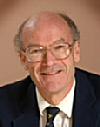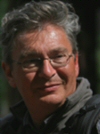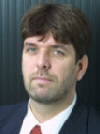1. Sustainable Production - Theo Geerken
| Key note lecture | |
|---|---|
 |
Jos Delbeke (to be confirmed)
|
| Theme 1: Policies for sustainable production | |
|---|---|
 |
Paul Ekins UCL Energy Institute, University College London, UK Paul Ekins PhD, MSc (Econ), MPhil (Peace Studies), BSc (Eng) has a PhD in economics from Birkbeck College, and is Professor of Energy and Environment Policy at the UCL Energy Institute, University College London. He is a Co-Director of the UK Energy Research Centre, in charge of its Energy Systems theme, and also leads UCL’s involvement in large research consortia on Bioenergy and Hydrogen. He was a Member of the Royal Commission on Environmental Pollution from 2002-2008 and, from 2003-2007, was on the UK Government’s Sustainable Energy Policy Advisory Board. In 1994 Paul Ekins received a Global 500 Award ‘for outstanding environmental achievement’ from the United Nations Environment Programme. |
| Theme 2: New approaches, methodologies, tools for sustainable production | |
|---|---|
 |
Ester van der Voet Institute of Environmental Sciences (CML), Leiden, The Netherlands Ester van der Voet obtained her MSc as a biologist in 1982 at Leiden University. Her first job was with the Centre of Energy Conservation, evaluating the consequences of energy scenarios on the natural environment. Since 1984 she has been employed as a researcher at the Institute of Environmental Sciences (CML) at Leiden University. She has conducted research that for the most part can be placed under the heading of Industrial Ecology. Research areas are, among others: stock breeding and the ammonia problem, risk assessment, life-cycle assessment, biodiversity policy, natural resource accounting, indicator development, material flow accounting, and especially substance flow analysis. In this last field she obtained her PhD in 1996. She still is employed at the CML as a senior researcher and project leader. She is now employed as an Associate Professor and has contributed to the start-up of a MSc program in Industrial Ecology. |
| Theme 3: Sustainable production: Business examples and research cases | |
|---|---|
  |
Peter Verschave Agfa Graphics NV, Mortsel, Belgium Peter Verschave (o1957) finished his MSc in organic synthetic chemistry in 1979 at the Katholieke Universiteit Leuven and obtained his PhD in Organic Chemistry in 1985 at the same university. In 1998 he obtained an Executive MBA at the UFSIA Management School of Antwerp. |
| Theme 4: No production without consumption: the two sided coin form SCP | |
|---|---|
 |
Arnold Tukker Netherlands Organisation for Applied Research, TNO, The Netherlands Arnold Tukker (1960) graduated in analytical chemistry, economics and didactics at the Utrecht University in 1987. In 1990 he joined TNO, where initially coordinated research on waste management policy and integrated substance chain management and served as section interim manager. In 1994 he joined TNO's strategic innovation think tank, TNO Strategy, Policy and Technology (STB). Over time, his focus shifted from waste management, environmental impact assessment, life cycle assessment, material flow analysis and risk assessment to interactive policy making and sustainable system innovation and transition management. In 1998 he published a book on societal disputes on toxic substances, which awarded him a Ph.D. from Tilburg University. He published some 40 peer-reviewed 40 papers, 5 books, 10 book chapters and 150 other publications. He played a leading role in the acquisition and management of major EU-funded programs like SCORE (the main global research network on Sustainable Consumption and Production) and EXIOPOL (the main EU effort in developing a global, detailed environmentally extended input output database). He currently manages the research program on Transitions and System innovation within TNO Built Environment and Geosciences, Business Unit Innovation and Environment. |

